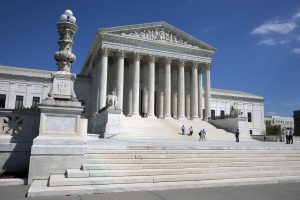 A little over two weeks ago, the Supreme Court unanimously issued a decision in Universal Health Servs., Inc. v. United States ex rel. Escobar that has drawn diverse reactions from the whistleblower plaintiff and defense bars as to how it will apply to future whistleblower cases.
A little over two weeks ago, the Supreme Court unanimously issued a decision in Universal Health Servs., Inc. v. United States ex rel. Escobar that has drawn diverse reactions from the whistleblower plaintiff and defense bars as to how it will apply to future whistleblower cases.
We’ve talked about Escobar twice on this blog, here and here, and as we’ve discussed in those posts, the Court was considering two questions:
- whether the “implied certification” theory of legal falsity under the False Claims Act is viable; and
- whether, if the “implied certification” theory is viable, a government contractor’s reimbursement claim can be legally “false” under that theory if the provider failed to comply with a statute, regulation, or contractual provision that does not state that it is a condition of payment.
We had hoped for a resounding win in the form of a firm Supreme Court endorsement of the implied certification theory. This would bolster whistleblowers who work hard to help the government recover ill-gotten taxpayer money. Some like Senator Grassley have hailed the unanimous case as being just that — “a big victory for taxpayers and will help to better protect those who rely on quality government programs.”
But while the opinion did endorse the implied certification theory, it did so only so long as certain conditions were met:
- claims from healthcare providers must request payment and make “specific representations about the goods or services provided,”; and
- an organization’s failure to disclose noncompliance with “material” requirements would equate to “misleading half-truths.”
These conditions are why the defense bar has also claimed victory, trumpeting the case as establishing “a strong new defense for defendants.” The argument goes that the Supreme Court has raised the “materiality” standard to a higher level where whistleblowers will now have to prove that the defendant should have known that the government was likely to withhold payment if it knew of the undisclosed regulatory violation. Justice Thomas, writing for the Court, suggested that evidence of how the government typically responds to such regulatory violations would be critical to the materiality issue.
The concern for whistleblowers is that if the materiality standard has indeed been raised, whistleblowers may be able to make it past a motion to dismiss more easily based on the implied certification theory only to have the defendants prevail on the materiality issue raised in a summary judgment motion or possibly at trial.
All that said, only time will tell exactly how the lower courts will enforce the materiality standard for the implied certification theory in future whistleblower cases. Hopefully the case will prove to be a sweeping victory for whistleblowers and that the defense bar’s spin regarding the heightened materiality standard is just that: spin.


